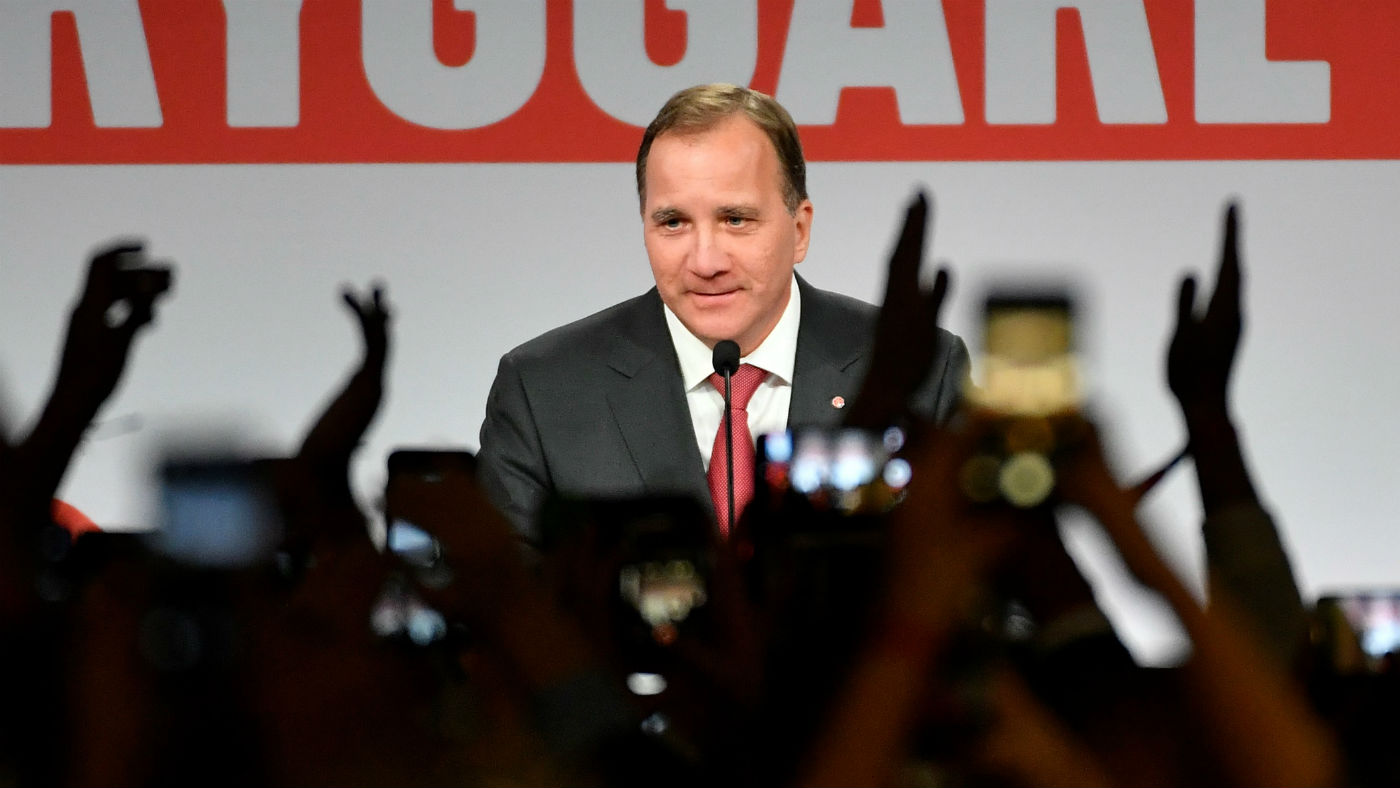What now for Sweden after PM ousted?
Following hung parliament, parties must decide whether to prioritise principles or power

A free daily email with the biggest news stories of the day – and the best features from TheWeek.com
You are now subscribed
Your newsletter sign-up was successful
Sweden has been plunged further into turmoil, after the country’s centre-left prime minister was toppled following a confidence vote in parliament.
Two weeks after a tumultuous general election that delivered a hung parliament, the centre-right opposition parties voted with the far-right Sweden Democrats to depose Stefan Lofven.
The newly elected speaker of parliament, Andreas Norlen of the Moderates, will now consult with parliamentary parties over a new prime minister, however, those discussions are likely to be “tortuous” says CNN, given all major parties have pledged not to enter a formal coalition with the anti-immigrant Sweden Democrats.
The Week
Escape your echo chamber. Get the facts behind the news, plus analysis from multiple perspectives.

Sign up for The Week's Free Newsletters
From our morning news briefing to a weekly Good News Newsletter, get the best of The Week delivered directly to your inbox.
From our morning news briefing to a weekly Good News Newsletter, get the best of The Week delivered directly to your inbox.
“The rise of the far right across Europe has forced many traditional parties into an uncomfortable choice of sharing power with populist forces or reaching out to long-standing opponents to keep them out”, says Reuters.
Sweden, long seen as a bastion of liberal values and political stability, now faces the same choice with its centre-left and centre-right blocs evenly balanced after this month’s election.
Ostracised by the political mainstream, the Sweden Democrats effectively hold the balance of power, and have threatened to block any new government unless they are given a say in shaping policy on key issues such as immigration, welfare and crime.
Norlen now has four attempts at proposing a new prime minister. If he fails to get enough support in parliament and the deadlock continues, Sweden would need to hold a new election within three months, “an eventuality most analysts think unlikely because the parties’ vote shares would probably not change by much”, says The Guardian.
A free daily email with the biggest news stories of the day – and the best features from TheWeek.com
The paper adds that with all potential cross-bloc coalitions or support deals “coming at a heavy political cost for those involved”, thrashing out an agreement is widely expected to take weeks or even months.
Ulf Bjereld, political scientist at Gothenburg University, told Reuters that “now the excitement will really start,” and “the parties will have to show their true colours now.”
-
 What are the best investments for beginners?
What are the best investments for beginners?The Explainer Stocks and ETFs and bonds, oh my
-
 What to know before filing your own taxes for the first time
What to know before filing your own taxes for the first timethe explainer Tackle this financial milestone with confidence
-
 The biggest box office flops of the 21st century
The biggest box office flops of the 21st centuryin depth Unnecessary remakes and turgid, expensive CGI-fests highlight this list of these most notorious box-office losers
-
 Switzerland could vote to cap its population
Switzerland could vote to cap its populationUnder the Radar Swiss People’s Party proposes referendum on radical anti-immigration measure to limit residents to 10 million
-
 Epstein files topple law CEO, roil UK government
Epstein files topple law CEO, roil UK governmentSpeed Read Peter Mandelson, Britain’s former ambassador to the US, is caught up in the scandal
-
 Iran and US prepare to meet after skirmishes
Iran and US prepare to meet after skirmishesSpeed Read The incident comes amid heightened tensions in the Middle East
-
 Israel retrieves final hostage’s body from Gaza
Israel retrieves final hostage’s body from GazaSpeed Read The 24-year-old police officer was killed during the initial Hamas attack
-
 China’s Xi targets top general in growing purge
China’s Xi targets top general in growing purgeSpeed Read Zhang Youxia is being investigated over ‘grave violations’ of the law
-
 Panama and Canada are negotiating over a crucial copper mine
Panama and Canada are negotiating over a crucial copper mineIn the Spotlight Panama is set to make a final decision on the mine this summer
-
 Why Greenland’s natural resources are nearly impossible to mine
Why Greenland’s natural resources are nearly impossible to mineThe Explainer The country’s natural landscape makes the task extremely difficult
-
 Iran cuts internet as protests escalate
Iran cuts internet as protests escalateSpeed Reada Government buildings across the country have been set on fire